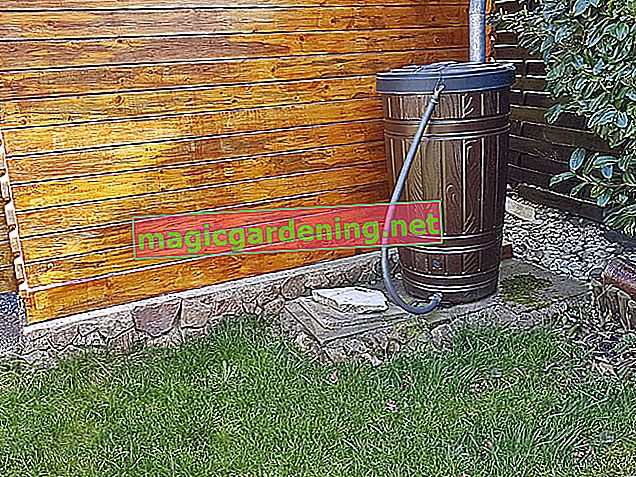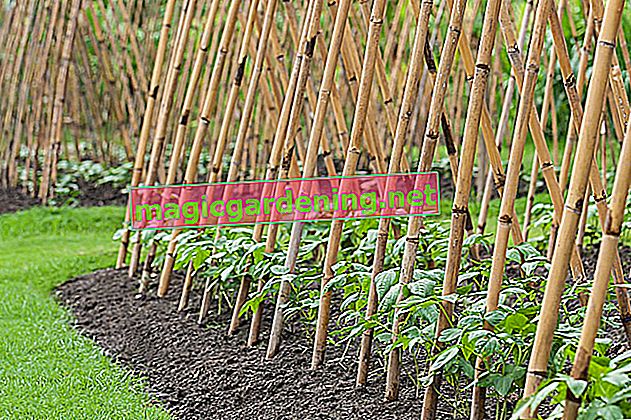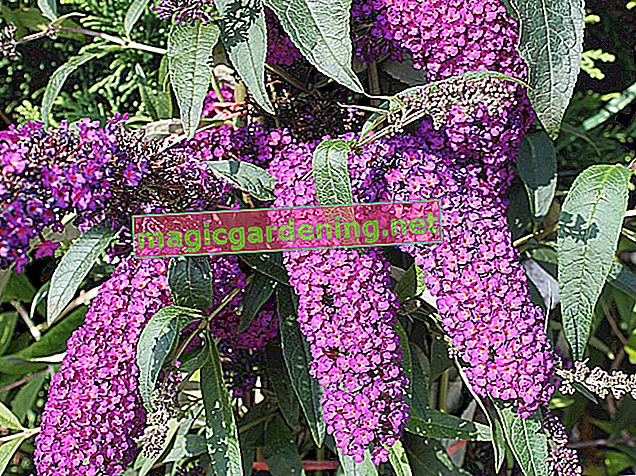
What is the litchi tomato and what does it look like?
Like tomatoes and potatoes, the lychee tomato is one of the nightshade family. Very unusual for tomatoes, the plant has hard spines on the stems, leaves and fruit capsules. The red or yellow, small, cocktail tomato-like fruits are surrounded by a spiky fruit shell and are somewhat reminiscent of chestnuts. The shrub can grow up to two meters high, depending on the soil quality and care. The taste of the fruit does not correspond to that of an ordinary tomato: the fruits are sweet and more reminiscent of cherries. For this reason, the ripe lychee tomatoes can not only be nibbled fresh from the bush, but also boiled down with jam or fruit juice.
also read
- Hibernate lychee tomato properly
- Grow tomatoes in the permaculture garden
- Lychee is especially in season in the winter months
How to plant the litchi tomato
You can grow the litchitomate in a similar way to normal tomatoes, ie you can grow the young plants from the seeds from the end of March / beginning of April. This can be done easily in standard potting soil on the windowsill or in the greenhouse. You can put the young plants outside after the ice saints (mid to late May). Lychee tomatoes need loose, nutrient-rich soil. Before planting, dig the soil thoroughly and work mature compost or manure into the soil. Put the plants in the ground and press them firmly. Now you can fix the litchi tomato to a stick so that the fast-growing shrub does not bend over - as with conventional tomatoes.
The optimal location for litchi tomatoes
- sunny
- sheltered from the wind
- protected from rain (e.g. by roofing)
- Cold-proof (no ground frost, no temperatures below 1 ° C)
Proper care
In terms of its care, you can treat the litchi tomato in the same way as tomatoes, but - unlike normal tomatoes - it does not need to be stripped. Fertilize the lychee tomato about every two weeks with preferably organic fertilizer such as compost or horn shavings. (€ 6.39 at Amazon *) Alternatively, you can also use liquid tomato fertilizer. The plant should be regularly supplied with water. However, only water them near the ground and never shower them off. The litchitomate also does not tolerate rain well and should therefore be under a roof.
Harvesting litchi tomatoes
Litchi tomatoes are harvested from late August to early October. The ripe fruits are between two and three centimeters in diameter and can be easily removed from the fruit capsules. However, you can still harvest slightly unripe fruit as the lychee tomato ripens.
Tips & Tricks
You can also keep the exotic plant in a sufficiently large bucket on the balcony or terrace. In this case, however, you should water the lychee tomato regularly, fertilize it and, above all, protect it from (heavy) rain. A covered shelter is therefore the ideal location on your balcony.








